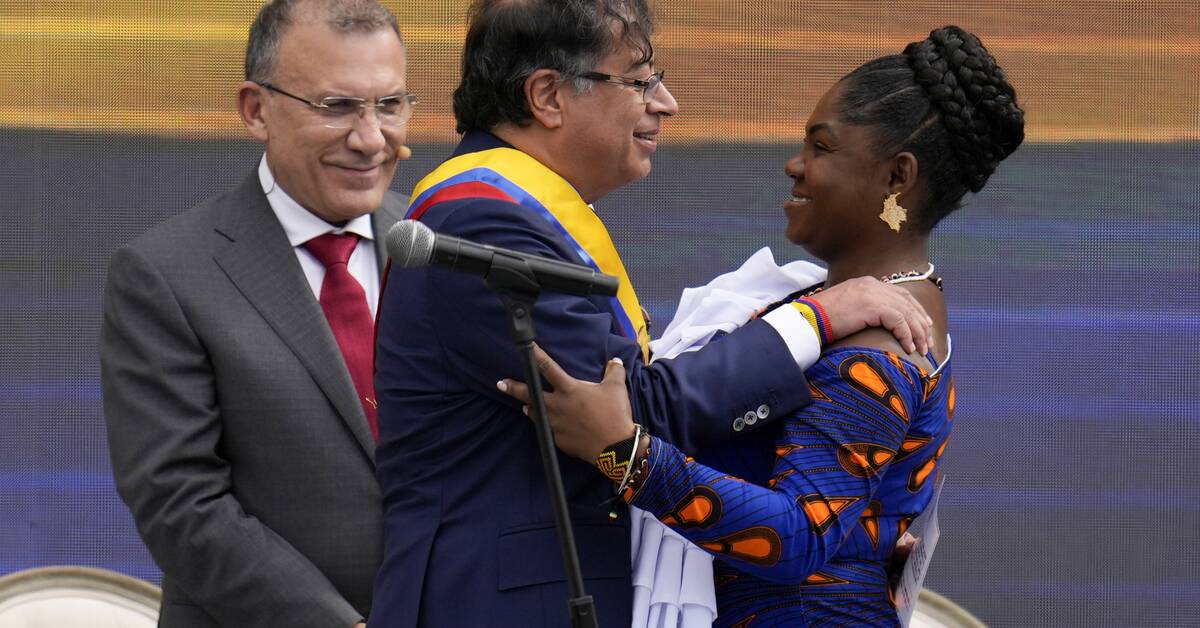During Sunday's ceremony, Gustavo Petro said the country had been given a second chance to tackle violence and poverty and promised reforms to reduce inequality in the country, and said he was open to starting peace talks with armed groups in the country.
Petro, the country's first president from the left flank – and former member of the M-19 guerrilla group – succeeds the unpopular conservative Iván Duque.
Criticized the United States
Among other things, Petro criticized the United States for a drug policy that focused on prohibition, which, according to him, fueled conflicts in Colombia and elsewhere in Latin America.
- It is time for a new international convention that accepts that the war against drugs has failed, he said.
-Of course, peace is possible.
But it depends on replacing current drug policies with strong measures that prevent consumption in developed societies.
The 62-year-old president, despite criticism of the United States, has said he wants to cooperate with the country, including in matters to reduce climate change, but also to improve communications in Colombia's sparse countryside, where many farmers see the coca bush as the only reasonable crop to grow.
"Ambitious agenda"
In addition to the economic promises, the new president wants to invest in the environment.
He has promised a halt to new permits for oil exploration and hydraulic fracturing (fracking), even though oil accounts for half of the country's exports.
The income for social policy must instead be financed with increased taxes for the rich and reduced opportunities for tax reductions for companies.
- He has a very ambitious agenda.
But he will be forced to prioritize.
The risk Petro faces is that he tries to push through too many reforms at the same time and doesn't push anything through, says Yan Basset, a political scientist at Rosario University in Bogotá.
Analyst Jorge Restrepo at the research center Cerac, however, sees the starting position for Petro as positive.
- He starts from an enviable position, with a large majority in Congress and with a support from the street that no government has had in recent years, he says.
By his side as vice president, Petro has 40-year-old Francia Márquez, the country's first black woman in the post.

